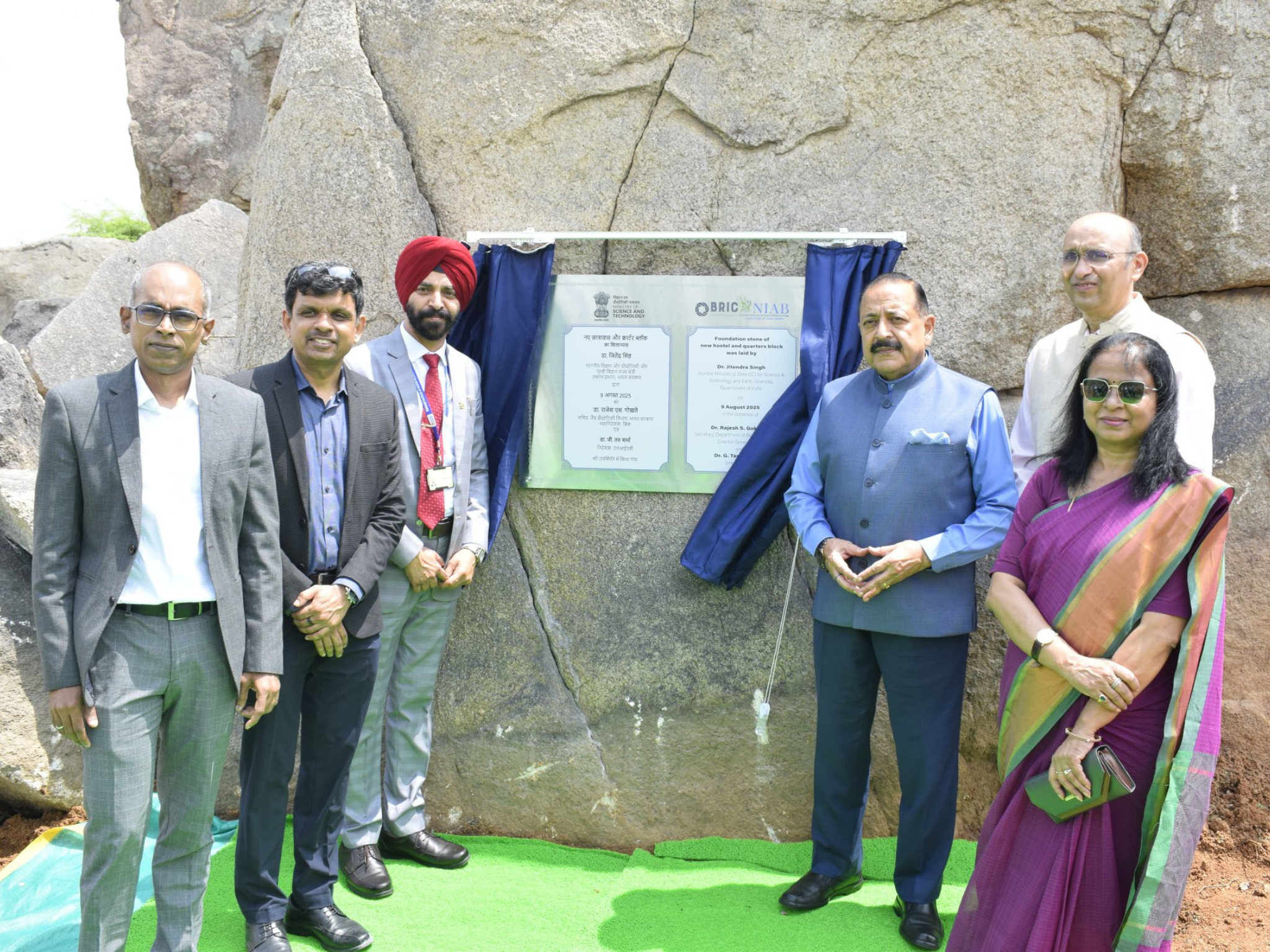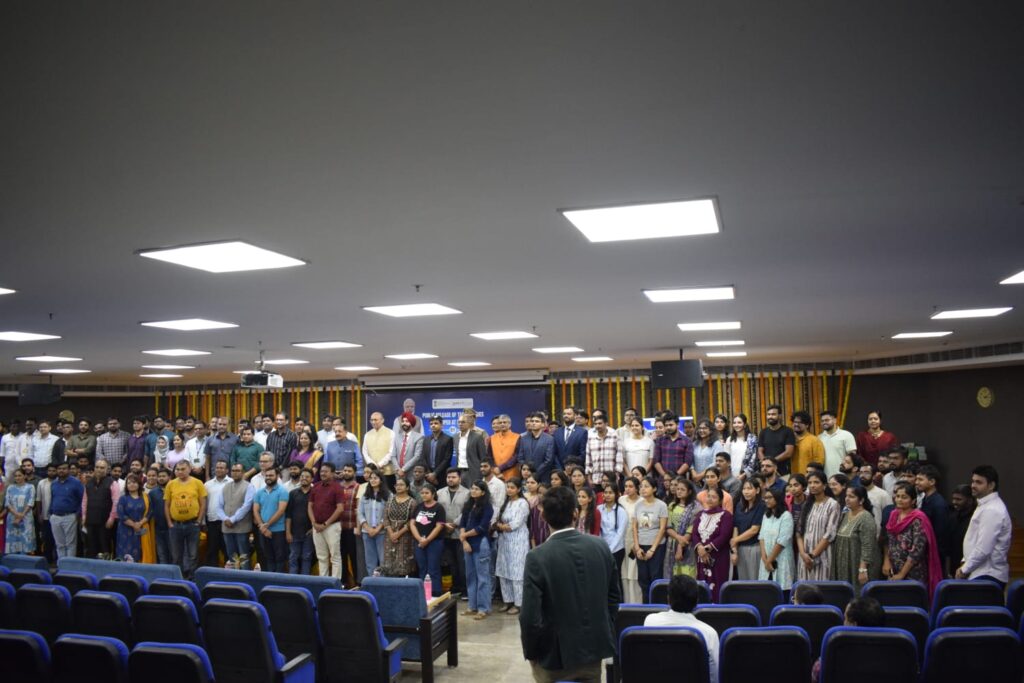
India’s cultivated meat industry just got a big boost, with a first-of-a-kind animal stem cell biobank listing proteins as a key priority.
India has opened its first animal stem cell biobank at the National Institute of Animal Biotechnology (NIAB) in Hyderabad, earmarking cultivated protein production as a major focus.
The centre was inaugurated by science and technology minister Jitendra Singh last weekend, and is aimed at revolutionising animal health, regenerative medicine, and agricultural productivity, in line with the country’s growing emphasis on biotech.
The 9,300 sq ft biobank was built with a ₹1.85 crore ($210,000) investment from the government. The NIAB is an autonomous institute of the Department of Biotechnology’s Biotechnology Research Innovation Council.
Biobank will supply stem cells and culture media

The laboratory will provide high-quality stem cells of various animal origins, as well as indigenous, cost-effective culture media, to research institutions, veterinary clinics, hospitals, and industry. It will support disease modelling, reproductive biotechnology, and tissue regeneration, with plans to expand under the National Biopharma Mission for biobanking animal stem cells and their derivatives.
Some of its priorities include accelerating advances in veterinary medicine, regenerative therapies, and cultivated protein production, in a bid to reduce the dependence on imports and foster the country’s biomanufacturing capacity.
The biobank is equipped with a stem cell culture unit, a 3D bioprinter for tissue engineering, a bacterial culture lab, cryostorage facilities, autoclave rooms, advanced air handling systems, and uninterrupted power backup.
Singh suggested that these innovations will boost the country’s agriculture-linked GDP, labelling the opening as an “evergreen revolution”.
“With 18% of GDP from agriculture and 60% of our workforce depending on it, innovations in veterinary health will have a transformative impact. ₹1 spent on agricultural research yields a return of ₹13, and linking industry partners from day one ensures these technologies reach the ground,” he said.
“The economy will shift from manufacturing to regenerative and genetic processes, and India has already initiated this transition,” he added. “We will not lag behind when the next industrial revolution – driven by biotechnology – takes over.”
Building on India’s BioE3 strategy and cultivated meat developments

Alongside the biobank, Singh also launched five diagnostic tools to enhance animal health “The innovations align with the government’s BioE3 policy, focusing on economy, employment, and environment, to create sustainable, knowledge-based livestock health solutions, from disease control to smart protein production,” said NIAB director G Taru Sharma.
Short for Biotechnology for Economy, Employment, and Environment, the BioE3 strategy was announced 12 months ago to foster high-performance biomanufacturing, with a focus on accelerating tech development and commercialisation by setting up biomanufacturing hubs and biofoundries.
Among the policy’s six pillars are smart proteins and functional foods. “By providing dedicated R&D and innovation support, the policy will accelerate the development of new technologies and processes that can pave the way towards the nutrition, price, and taste parity of smart protein products, making them a truly competitive alternative to their animal-derived counterparts,” Sneha Singh, managing director of the Good Food Institute India, told Green Queen last year.
“Smart protein startups will gain significant momentum through dedicated R&D and innovation support, greater investments, and a nurturing ecosystem. The policy will foster a collaborative environment, facilitating the exchange of knowledge and resources between industry and academia, and encouraging public and private partnerships, leading to faster development and commercialisation of smart protein technologies with biohubs and biofoundries.”
The new biobank is the latest in a list of developments signalling the advancement of India’s future food economy. Two alternative protein centres opened in Bengaluru in 2024, just as the Food Safety and Standards Authority of India (FSSAI) worked on establishing a regulatory framework for novel foods.
In December, Biokraft Foods held the country’s first public tasting of cultivated meat, presenting hybrid chicken to over 30 attendees in Mumbai. And this year, it unveiled cultivated fish products as part of a project with a government-backed research institute, while announcing its intention to file for regulatory approval with the FSSAI.
Biokraft Foods aims to achieve a commercial rollout of both its meat and seafood products by 2026. The market seems ready. A 2024 survey found that over 60% of Indians are willing to buy cultivated meat, with 59% identifying it as an alternative to conventional meat that promotes nutritional security.
The post India Opens First Animal Stem Cell Biobank, With Cultivated Meat A Key Focus appeared first on Green Queen.
This post was originally published on Green Queen.